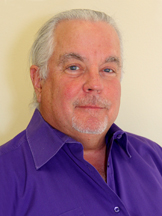
Is tribal gaming really indistinguishable from commercial gaming? Are tribal casinos simply redecorated versions of commercial casinos? Do people even perceive the blood, sweat and tears that have gone into tribal gaming enterprises?
Certainly the bottom line would convince any skeptic that tribal gaming is more than a matter of enriching shareholders—the raison d’etre of commercial casinos.
The revenue that spills across the tables and cycles through the slot machines goes to much worthier goals: health care for tribal members, infrastructure developments on reservations, cultural education for children of tribal members, care for the elderly, and any other goals characteristic of an independent government. But do our customers realize that tribal gaming is the lifeblood of tribal members, and a proud enterprise that benefits all?
The answer became clear last year, when the Covid-19 pandemic hit. As with most health emergencies, it impacted the communities that are least prepared, and unfortunately, in some cases that included reservations. But in the beginning—the most terrifying part of the pandemic—tribal leaders responded. Even before governors ordered businesses to shut down—including commercial casinos—many tribal gaming enterprises had already reached that conclusion and closed to protect customers, employees and tribal members.
Tribes are sovereign nations, and don’t have to follow the orders of the governors. They made decisions about closing independent of the state government. And those decisions made were for the good of the tribes.
These decisions weren’t taken lightly. After all, when you turn off the spigot of revenue from tribal gaming, it affects every element of tribal government. The good things that come from casino revenues grind to a halt. The very social and financial stability of tribes are at risk.
But even with those very serious consequences, most tribal leaders responded positively. Lots of tribal gaming enterprises continued to pay their employees. Some offered food, extended medical benefits and even offered mental health assistance during this tough time. If the financial straits became too dire and layoffs were necessary, tribal leaders committed to bring back employees as soon as possible.
That quickly became the focus of every executive involved in tribal gaming. Reopening was essential, but it could only be done in the safest, most secure way. And it also could be done independently of any governor’s orders.
Remember, the lockdown was only supposed to last a couple of weeks—a month at the most. But as weeks stretched into months, public governments seemed paralyzed. Their only reaction was to wait it out.
Not so with tribal governments. They immediately sprang into action, conferring with health and safety experts about what needed to be done to reopen their casinos. The first Plexiglas was erected in tribal casinos. The first temperature checks were conducted at the entrances to tribal casinos. And the first casinos to reopen were tribal casinos.
But those reopenings were well thought-out, with an abundance of caution (as much as that phrase grates on us today). After all, in the forefront of the minds of the tribal elders was the safety of their members, their employees and their guests.
That’s not to say there weren’t some glitches. The virus doesn’t favor one group over another—everyone was equally vulnerable. Perhaps the hardest hit tribe was the Navajo Nation, which only recently reopened its gaming halls. But again, even Navajo elders were cautious when considering how and when to reopen. Some casinos opened and then closed again, learning how to handle the virus as a result.
In short, tribal gaming led the way when it came to reopening casinos safely and securely. Hard Rock’s Jim Allen told me the Seminole Tribe completely revamped the way it does business as a result of the pandemic. Hard Rock’s procedures were praised and copied in many jurisdictions around the world, and not just in casinos.
The enlightened response of tribal gaming has opened the eyes of many people, maybe shifting perceptions about the entire industry and opening up the realization that tribal gaming is indeed different than commercial gaming. This is not a criticism of commercial gaming, mind you. Most of the commercial casino companies have displayed the same compassion and care for their employees and customers. But the differences between the two have
become very apparent. As sovereign nations, tribal governments made the decisions surrounding the pandemic in a rational and responsible manner.
Well done.






